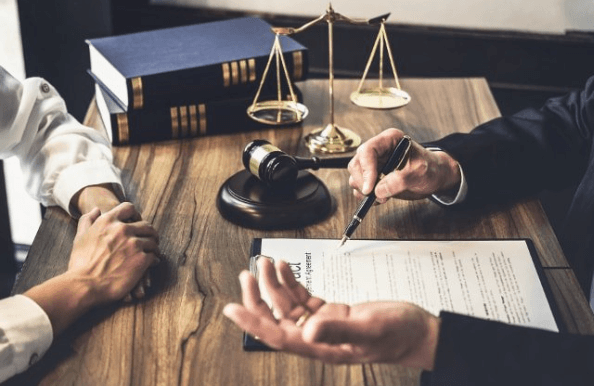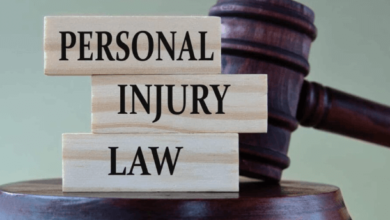
Dealing with felony charges in Chicago requires expert legal representation. A Chicago felony lawyer can be the key to navigating the complexities of Illinois criminal law and securing the best possible outcome. Our legal team is dedicated to thoroughly understanding each case and providing the personalized defense you need.
Felony charges come in various forms, from drug offenses to violent crimes. Each charge carries severe penalties, including long-term imprisonment and hefty fines. We specialize in analyzing the details of each case to build a robust defense strategy aimed at protecting your rights and freedom.
In Illinois, the criminal justice system can be daunting. That’s why it’s crucial to have a competent Chicago felony lawyer by your side.We make certain that every facet of your case is thoroughly investigated, providing you with the knowledge and support you need in these trying times.learn more about Chicago criminal defense lawyer
Understanding Felony Charges in Illinois
In Illinois, felony charges range from minor offenses to extremely serious crimes. These charges and their consequences can dramatically affect one’s life, making it imperative to understand their classifications, the legal process and the role of legal representation.
See also: Loan Modification Lawyer: Helping Homeowners Navigate Mortgage Challenge
Types of Felonies
Felony charges in Illinois are classified into five categories: Class X, Class 1, Class 2, Class 3, and Class 4.
- Class X Felonies are the most serious, including crimes like aggravated sexual assault and armed robbery. These carry sentences ranging from 6 to 30 years in prison.
- Class 1 Felonies involve serious offenses such as sexual assault, with prison terms of 4 to 15 years.
- Class 2 Felonies cover crimes like burglary and certain drug offenses, leading to sentences of 3 to 7 years.
- Class 3 Felonies include less severe crimes such as aggravated battery, with penalties ranging from 2 to 5 years.
- Class 4 Felonies are the least severe, including offenses like possession of a controlled substance, resulting in 1 to 3 years in prison.
The Role of a Felony Lawyer
A felony lawyer plays a critical role in the defense process. From the moment charges are filed, they provide essential legal guidance and representation. We evaluate evidence, advise on plea deals, and develop defense strategies tailored to each case.
Our expertise in Illinois law allows us to navigate complex legal systems effectively. By analyzing criminal history and the specifics of the alleged crime, we strive to reduce sentences or even achieve case dismissals. Our skills and experience can significantly influence the outcome of a felony case, ensuring rights are protected throughout the process.
Felony Offense Process and Sentencing
The felony offense process in Illinois begins with an arrest, followed by arraignment where charges are formally presented. Pretrial motions may be filed, evidence examined, and plea bargains negotiated.
If the case proceeds to trial, each side presents its arguments, and a verdict is rendered. The felony class, criminal history, and specifics of the offence all influence the sentence.For serious offenses, sentences may include long-term imprisonment, hefty fines, and probation.
In cases with mitigating factors, sentences might be reduced. Navigating this process requires a thorough understanding of Illinois law and strategic legal representation to protect the accused’s future.
The Defense Strategy and Trial
We focus on building a comprehensive defense case and ensuring our clients’ rights are protected during the trial. Post-conviction considerations are also crucial for understanding next steps and possible outcomes.
Building a Defense Case
Building a defense case is about gathering and presenting evidence effectively. We start with a thorough consultation to understand the specifics of charges like robbery, assault, burglary, or murder.
A criminal defense lawyer reviews police reports and interviews witnesses. The aim is to uncover inconsistencies in testimony and procedural errors. Expert testimony, such as forensic analysis, can challenge evidence like DNA or fingerprints. In some cases, our strategy could lead to charges reduced or even dropped.
Rights during Trial
During a criminal trial, safeguarding our clients’ rights is paramount. Our role includes ensuring the due process rights under the Constitution are respected.
We make objections to improper evidence and question the credibility of prosecution witnesses. We also emphasize the right to remain silent and the right to a fair trial. This ensures no self-incriminating statements are unnecessarily made.
Post-Conviction Considerations
After a conviction, several steps can still be taken. It’s essential to discuss options like filing an appeal or seeking a reduced prison sentence.
Post-conviction relief could mean probation in place of incarceration or in some cases, getting convictions overturned. We guide clients through post-conviction procedures to explore all potential avenues.




